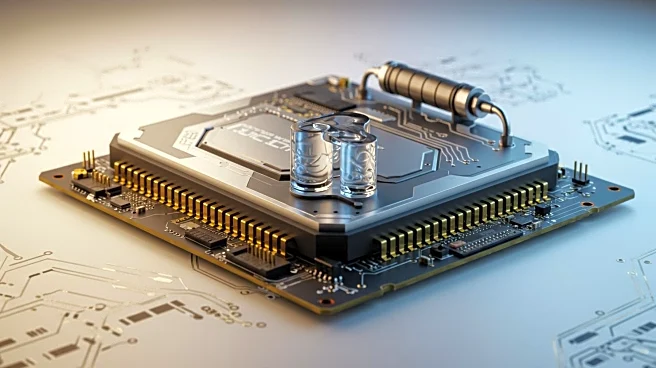What's Happening?
Nvidia has suspended production of its H20 AI chip, designed for the Chinese market, due to security concerns and ongoing trade restrictions between the U.S. and China. The company has instructed its suppliers, Amkor Technology and Samsung Electronics, to cease manufacturing the chip. This decision follows China's Cyberspace Administration blocking sales of the H20 chip, citing potential security threats. Despite a temporary export license allowing sales, Nvidia faces challenges as Chinese authorities question the security of its products. The H20 chip, a modified version of the H100 GPU, was initially banned from entering China, but later received approval contingent on revenue sharing with the U.S. government.
Why It's Important?
The suspension of the H20 chip production highlights the impact of geopolitical tensions on technology companies. Nvidia's decision reflects the complexities of navigating international trade policies and security concerns. The halt in production affects major Chinese tech firms that rely on Nvidia's chips, potentially disrupting their operations and pushing them to seek domestic alternatives. This situation underscores the strategic importance of semiconductor technology in global politics and the challenges faced by companies operating in this sector. The ongoing trade restrictions aim to maintain U.S. leadership in AI technology while addressing national security risks.
What's Next?
Nvidia must address the security concerns raised by Chinese authorities to resume production and sales of the H20 chip. The company may need to enhance its product security features to satisfy regulatory requirements. Meanwhile, the Chinese government is encouraging domestic tech firms to source hardware locally, which could impact Nvidia's market share in China. The resolution of these issues will depend on diplomatic negotiations and Nvidia's ability to adapt to changing trade policies. The company's future strategy will likely involve balancing compliance with U.S. and Chinese regulations while maintaining its technological edge.










